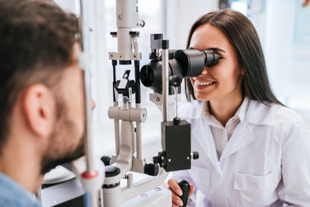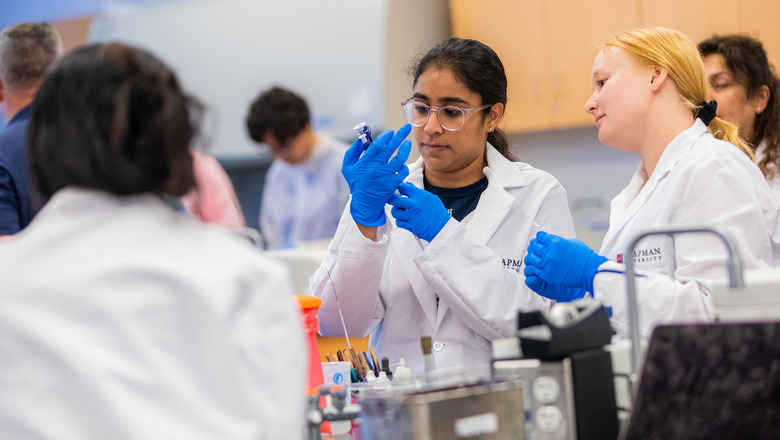 Optometrists examine the eyes and other parts of the visual system. They diagnose
and treat visual problems, manage diseases, injuries, and disorders related to the
eyes, and prescribe lenses when needed.
Optometrists examine the eyes and other parts of the visual system. They diagnose
and treat visual problems, manage diseases, injuries, and disorders related to the
eyes, and prescribe lenses when needed.
A GPA of 3.4 or higher is ideal as a competitive applicant. The most common standardized exam is the OAT (Optometry Admission Test). The average score for admitted students is around 330.
In addition, you should cultivate a variety of experiences that make you a strong candidate:
- Exposure to optometry and/or the healthcare field is strongly recommended. First, you want to make sure this is the right career for
you. Second, you should be able to answer a few questions:
- What setting do you want to practice in?
- What population do you hope to work with?
- Ultimately, why do you want to be an optometrist?
- Community service and involvement
- Research, extracurricular, and work/life experiences
All of these things demonstrate your readiness and motivation to pursue a career in optometry.
Activities and extracurriculars
Get involved early in these and ramp up to have a well rounded resume by the time you apply. However, your first job is your academics. You need to maintain a strong academic foundation to be competitive.
- Clinical involvement. You can gain experience and learn about the field in a number of ways:
- Shadowing an optometrist and/or working in an optometry office.
- What do they do that appeals to you?
- Volunteering in free clinics or hospitals— learn about the field.
- Shadow an ophthalmologist— what is different in the field? How can they be complementary?
- Community service. Give of yourself to your community. Shelters, food banks, community resource centers, after school programs. Preferably not clinically related, although in some cases there may be some crossover.
- Research. Chapman offers many opportunities for students to get involved in research as an undergrad.
- Extracurriculars. Involvement in things you’re interested in, including clubs; does not need to be clinically related.
Academics/prerequisites
These are the general courses you should take. There may be some programs that have additional or fewer requirements. Always check with the programs to confirm.
|
Required subjects |
Course options |
|---|---|
|
Biology (1 semester with lab) |
BIOL 204 or BIOL 205 or 208 Biology AP credit generally not accepted |
|
General Chemistry (2 semesters with labs) |
• CHEM 140 and 140L |
|
Organic Chemistry (2 semesters with labs) |
• CHEM 230 and 230L |
|
Biochemistry (1 semester) |
BCHM 335 |
|
Human Anatomy (1 semester with lab) |
HSCI/BIOL 210 |
|
Human Physiology (1 semester with lab) |
HSCI 365 |
|
Psychology (1 semester) |
PSY 101 |
|
Statistics (1 semester) |
Most stats courses; options include MATH 203, PSYC 203, MATH 303 (or AP credit) |
|
English Composition (1-2 semesters) |
ENG 103 and one other composition-based course |
